Lance Armstrong exclusive interview: Part 2
Working the media, David Walsh and being clean during his comeback
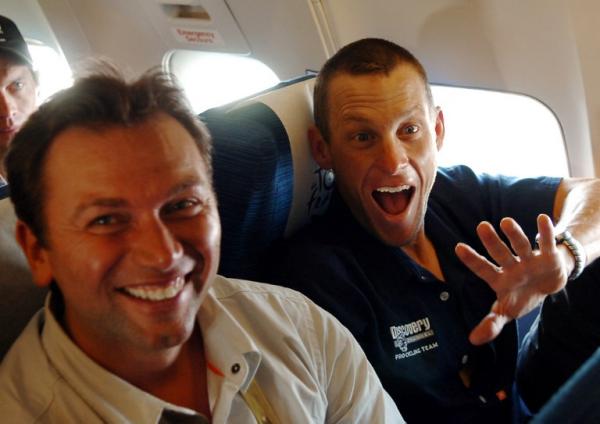
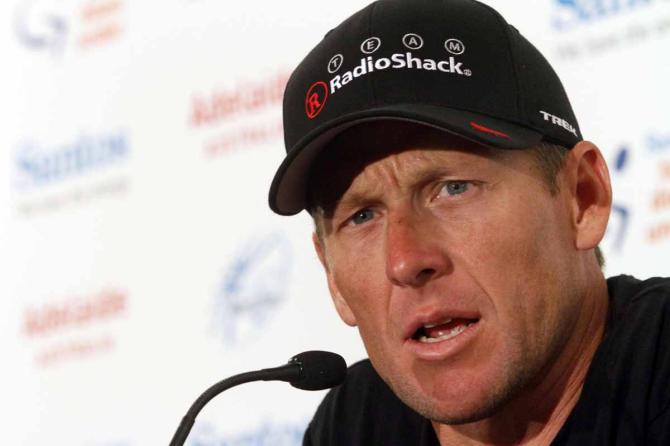
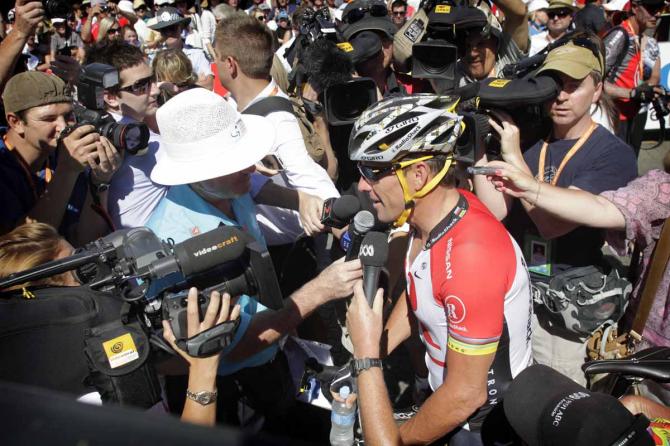
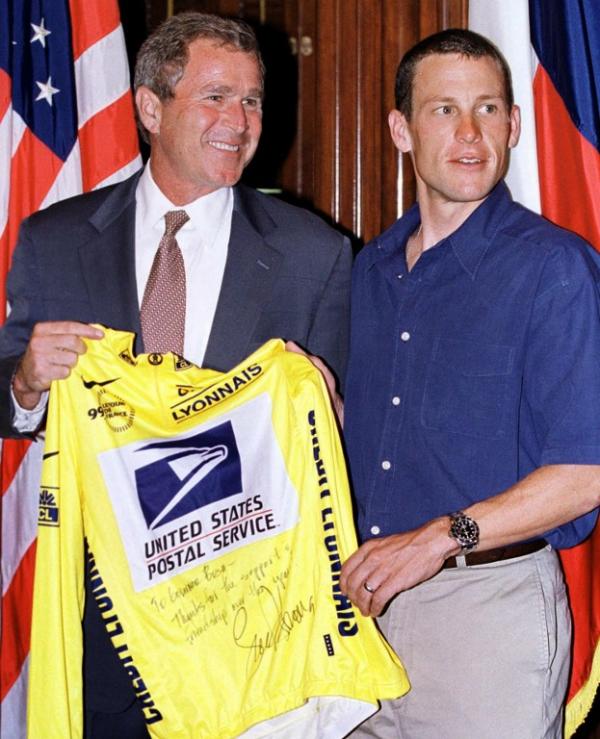
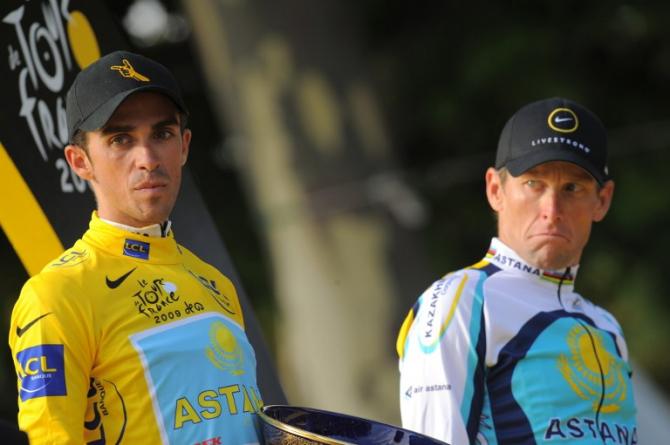
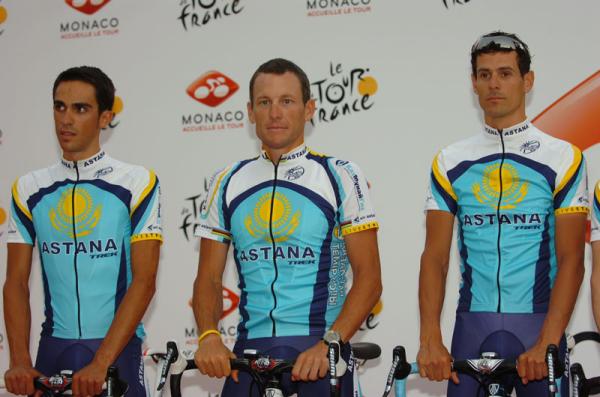
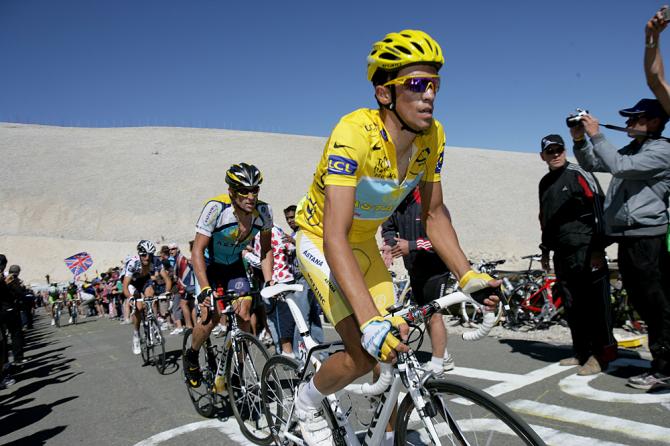
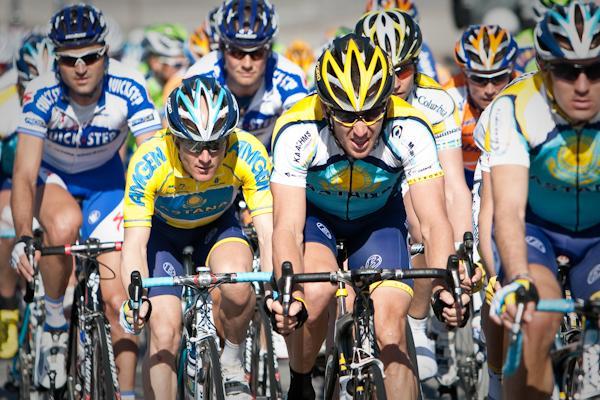
During Lance Armstrong’s career, controlling the narrative was a key element to his power, his story and to hiding his doping.
Q&A: Tygart on Lance Armstrong, death threats and catching the cheats
Greg LeMond: Lance Armstrong should go to jail
LeMond: Armstrong was a top-30 Tour rider at best
Wheelmen book excerpt: What to do about Lance Armstrong (part 3)
Lance Armstrong exclusive interview: Part 1
Whether it was through controlling access of the media, degrading those few journalists that stood in his way or welcoming the writers who thrived on his cancer-survivor-turned-Tour-winner miracle, he knew it all helped shaped his heroic public perception.
In this second part of Cyclingnews’ exclusive interview with Armstrong at his home in Austin, Managing Editor Daniel Benson ask him how his relationships with the press worked; whether it was the pro-Armstrong camp or those like David Walsh and Pierre Ballester who listened to their instincts and strove for the truth. He admits he and Walsh are similar because they are both “win at all cost guys.”
Armstrong also reveals his regrets about using the cancer shield to protect and boost his image as the doping allegations grew stronger and stronger. He acknowledges he fooled them into believing his story was perfect.
USADA has claimed there is a one in a million chance that Armstrong rode the 2010 Tour de France clean. He says a test for blood transfusions would prove his innocence.
Cyclingnews will publish further parts of interview in the next few days. You can read part one of the interview here.
DB: Let’s talk about 1999. I remember reading the cover of one magazine and the heading was ‘English-speaking Tour winner wanted please.’ I want to talk about how the media reacted to your win, in terms of both the suspicions they had and the other side of cheerleading and help they gave to promote the story. What was that like, how did that work?
Get The Leadout Newsletter
The latest race content, interviews, features, reviews and expert buying guides, direct to your inbox!
LA: Which part?
DB: The pro-Armstrong part.
LA: The momentum built in the media and then that helped build it in the public eye. It was what it was. It was a cancer survivor who was two years out of diagnosis winning the hardest sport in the world. As you can imagine, I know at the time I took that for granted. I can see why that became such a story and one turns to two and the story just builds and builds. Hence the reason why so much of the fallout has been so drastic. If you’re just a guy who wins the Tour seven times with no ‘story,’ the fallout isn’t the same. A lot of that’s my fault. I accept responsibility for being so aggressive and stern when it came to the denials. It was a tremendous mistake. That took the fall and doubled it.
I definitely denied it. In the first press conference in 1999 when the question comes up and you’re in the yellow jersey, I don’t know a person who would say ‘you’re right, that’s a great question, and I have to be honest’. Who the fuck would say that? Who? It’s one thing to not comment and get out of that question as soon as you can. It’s a whole different thing to be confrontational and combative, which was what I was.
DB: You had these relationships with some press though, I remember a French journalist visiting you when you were sick in 1996 and he saw a shift in your personality and behaviour from 1999 onwards.
LA: I don’t know. But certainly there was a big difference between a press conference of mine in 1996 and a press conference of mine in 1999. It elevated at what seemed to me as being very quickly. I wasn’t prepared for that, clearly. It’s no secret that it was on the heels of Festina in 1998 so you were going to get a lot of questions. I took offence to those, I didn’t want to answer those, but I handled it the wrong way. That’s all my fault. I’d like to go back and answer questions differently or more mildly but I can’t.
DB: At the same time, you had a large element in the press corps that didn’t ask you those questions and wrote glowingly of you.
LA: Yep.
DB: They must have known, too, or had their suspicions but didn’t write about it. How did that relationship work?
LA: I don’t know. I think, as you know, the press room at the Tour is a weird place. You have a thousand people there. Okay so you have guys who really know, know cycling left, right and centre, upside down and inside out. They knew. They knew everything, all that shit, but they were friends with the players. Then you had a new generation of journalists and then you had those who were there just to cover a doping story. They didn’t care about a bike race, they didn’t care about a crash, they just came waiting for a car crash.
DB: Did you respect that pro-Armstrong camp?
LA: Yeah. And I still do.
DB: Well what about on the other side of the fence, guys like David Walsh? What were your feelings towards him and have they changed since 1999?
LA: Obviously David and I have had a long history. I have mixed feelings. He was right about some things but I saw a side of him along the way that wasn’t correct. He knows better than anyone the times he’s been caught out, but whatever. I doubt that he will read this interview because he’s in the middle of his global victory tour. I’ve tried to resolve that situation as best as I could and I think that I did.
DB: How did the blacklist work?
LA: There was never a blacklist. People think there was a list on the bus with a bunch of photos, but that’s a load of bullshit. Okay, we’d sit in the bus and look outside, but we did that every day and talked about other teams, people – you’re pretty much a rat in a cage. We were looking outside. There were certain people we didn’t want to talk to but Chris Froome, I’m sure, sits on the bus and looks outside and thinks he’s not talking to that guy. That’s totally normal.
DB: There was an element of the press you wouldn’t talk to and there were certainly journalists who felt that if they were associated with guys like Walsh or [Pierre] Ballester, for example, they would find their access limited or cut. That’s been well documented.
LA: There was never that much access anyway. There was very little access anyhow.
DB: That did happen. Guys kicked Walsh out of a car because they didn’t want to travel with him. Johan Bruyneel once made that clear to them.
LA: I consider Rupert [Guinness] and John [Wilcockson] friends, I don’t know Andy [Hood] that well but I never once said that if you’re riding in the car with him you can’t talk to me. I never said that. It’s no secret that David and I had a contentious relationship, the entire world knew, but there was no quid pro quo with those guys.
DB: Do you respect David Walsh?
LA: [long pause] If you look at the entire peloton...This isn’t Michelle Smith. She was in a pool with more or less clean athletes. This was truly a targeted mission but that’s okay, that was his ticket. So was he being honest, and right on certain aspects? Yes. Was I no different from everyone else? I think we’re starting to see that.
DB: But back to the question. Do you have, even if it’s grudging or if it’s too soon, do you have respect for him as a journalist. I won’t say you’re similar but you’re both dogged….
LA: You took the words right out of my mouth. David and I are similar. I was a win at all costs kind of guy. David is a win at all costs kind of guy. Even if it means embellishing, tweaking. Was he right that I was doping in those years? Absolutely and hats off to him, but there were times he would have done anything to do that story. But I understand that, I was the same way. That was the world I lived for a long time.
DB: Did you think that you could control the media, the cycling media?
LA: I don’t know. I think for the most part, I don’t know the answer, but for the most part I had a decent relationship with them.
DB: Because they wanted a good story and you were that angle?
LA: I don’t know.
DB: Did it come easy for you to have those type of relationships, to have those press conferences in 1993 to having those different ones in 1999 and onwards?
LA: Again it changed. The media really changed. You had more and more outlets. In '93 you had newspapers and you didn’t have this entire army of bloggers and websites. Fast forward to today where everyone is some kind of journalist covering an event. That breeds competition, and people chasing stories. Cycling was a perfect petri dish for that. Again fast forward to today and the frenzy around the last 12 months. It was fodder for what we call the media today.
DB: Was it easy to do that, to sit in the press conferences and deny and lie effectively?
LA: Again, I don’t know who else got the questions, but once you say no once you’re stuck with no. So you just keep saying no.
DB: You said more than just no though.
LA: I know and it would have been better to have been more passive in a press conference.
DB: I remember one quote, ‘I’ve seen death in the face and I don’t do drugs.’ That’s a really strong statement to make.
LA: Daniel, those are the moments you’d do anything to take back or say something different, or erase it. It’s inexcusable; it’s embarrassing to hear that. And even in many ways, fuck the press room. A statement like that, what it would have signified or the confidence it would have given to the community that matters, the cancer community, they took stuff like that to heart. That gave them faith that the story was perfect. In my mind – and maybe I’m more aligned to that group – but in my mind that’s where the foul there is times one thousand. I’d love to change it but I can’t.
DB: Do you ever wish that you’d not come up with that TUE in '99, lost the Tour win and been sanctioned?
LA: I’ve not thought about that. I don’t know. I don’t have a crystal ball.
DB: If you’d ever been caught outright would have you have come back and done the same again, or would you have raced clean or given up?
LA: Again I don’t know. I never planned on testing positive. I was not going to test positive. Ever. No.
DB: Because?
LA: Because the plan was conservative. It’s funny because I say these things that are the truth and people don’t like it. They say they want the truth, you give them the truth and then they say, ‘fuck, we don’t like the truth.’ It was so conservative, risk adverse and mathematical. It was not going to be a positive test.
DB: Just going back to what you said, part of the reason why people don’t like your truth is because they find it hard to tell what the truth actually is.
LA: I have no credibility. Of course they’re going to think I’m lying, that I lied to them for 15 years, and of course that I’m lying still. Right. I get it. But I’d put it out there in pieces, not every day, but at times like this and that’s it, that’s the truth. They don’t like me saying Postal wasn’t that sophisticated. They don’t like me saying that in 2009 I was clean but these things are the truth. But I also understand the people who say they don’t believe me.
DB: Do you care?
LA: Yeah. That’s frustrating, I absolutely care about that. Look man, this is not easy, it’s not going to be fast, there’s no magic formula, it just takes time. Over time there will be other voices that support, hopefully, what I say, about that era. Over time, hopefully, there’s a test for transfusions and 2009 will be put to the true test.
DB: And 2010?
LA: Oh god yeah. I was terrible then. I wasn’t that good in '09. It’s so funny as people point to Ventoux. It would be one thing if you were 15th, rode away, won by 5 minutes and made the podium but I was fucking hanging on by the skin of my teeth.
DB: That’s the blip on the passport that people and experts point to.
LA: But the sample was taken, me and Levi [Leipheimer], we drive down, the doping control agent was in the room and the sample was taken immediately. No food, no water, no nothing.
DB: USADA said that there was a one in a million chance that you rode that Tour clean.
LA: That was just about one of their ten talking points. Hey, I don’t care what they said. What I’m saying is that the day there’s a test of a transfusion I’ll be the first guy to put that sample on the line. And I’ll bet everything on that.
Daniel Benson was the Editor in Chief at Cyclingnews.com between 2008 and 2022. Based in the UK, he joined the Cyclingnews team in 2008 as the site's first UK-based Managing Editor. In that time, he reported on over a dozen editions of the Tour de France, several World Championships, the Tour Down Under, Spring Classics, and the London 2012 Olympic Games. With the help of the excellent editorial team, he ran the coverage on Cyclingnews and has interviewed leading figures in the sport including UCI Presidents and Tour de France winners.
